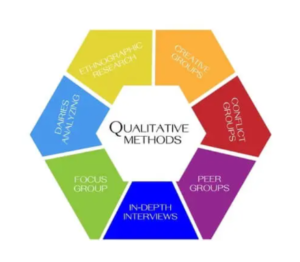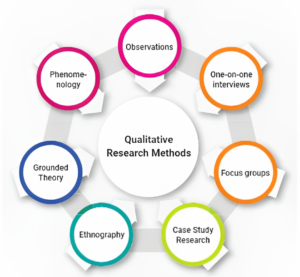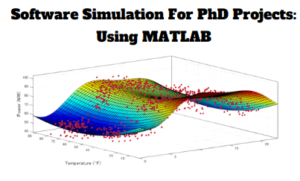Mixed Methods Research (MMR) has emerged as a useful approach in research especially for complex research questions that cannot be fully addressed using either quantitative or qualitative methods alone. It offers a comprehensive framework by integrating numerical data with descriptive insights, allowing researchers to capture a holistic understanding of their subject. For PhD students particularly those grappling with multifaceted research questions, MMR provides a versatile and robust methodology.
Understanding Mixed Methods Research
Mixed Methods Research is characterized by the combination of quantitative (e.g., surveys, experiments, statistical analysis) and qualitative (e.g., interviews, observations, thematic analysis) techniques within a single study. This integration is not merely about using both methods but ensuring they complement each other to provide deeper insights.
For instance, a PhD student investigating educational outcomes may collect numerical data on student performance through standardized tests (quantitative), while also conducting interviews with teachers to understand classroom dynamics (qualitative). Together, these methods provide a more nuanced perspective than either could individually.
The key to successful MMR lies in the seamless integration of these methods, ensuring that the data collected from both approaches informs and enhances the other. This integration can occur at various stages of the research process, such as data collection, analysis, or interpretation.
Why Choose Mixed Methods Research?
PhD students often face complex research questions that cannot be fully addressed by sticking to a single methodology. MMR is particularly useful when:
- When a research question involves multiple dimensions, MMR allows for a comprehensive exploration by leveraging both numerical precision and contextual depth.
- Triangulating data from quantitative and qualitative sources can strengthen the validity of findings by providing converging evidence.
- MMR helps reconcile inconsistencies that might arise from separate quantitative and qualitative investigations.
- The combination of rich descriptive data with empirical evidence often results in actionable insights that are more relevant for policymakers and practitioners.
Designing a Mixed Methods Study
1. Choosing an MMR Design
MMR designs fall into three primary categories:
- Convergent Design: Quantitative and qualitative data are collected and analyzed separately but integrated during interpretation to compare and contrast findings.
- Explanatory Sequential Design: Quantitative data is collected and analyzed first, followed by qualitative data to explain or expand on the initial findings.
- Exploratory Sequential Design: Qualitative data is collected first to explore a phenomenon, followed by quantitative data to test or generalize the findings.
For PhD students, the choice of design depends on the nature of their research question, the availability of resources, and the timeline of their study.
2. Integration of Methods
Integration is the cornerstone of MMR and can be achieved through:
- Merging Data: Combining quantitative and qualitative results to draw comprehensive conclusions.
- Embedding Data: Using one method within the framework of the other to address specific aspects of the research question.
- Connecting Data: Using the results from one method to inform the design or implementation of the other method.
Steps to Conduct Mixed Methods Research
Conducting MMR involves systematic planning and execution. Below is a step-by-step guide tailored for PhD students:
- Define the Research Question: Ensure that the research question necessitates a mixed methods approach. For example, “What are the factors affecting employee satisfaction, and how do these factors interact in diverse organizational settings?”
- Review the Literature: Identify gaps that MMR can address. Highlight studies that have used either quantitative or qualitative methods separately and outline how an integrated approach could provide additional insights.
- Choose the Appropriate Design: Select a design (convergent, explanatory, or exploratory) that aligns with your research objectives.
- Develop a Research Plan: Specify the types of data you will collect, how they will be integrated, and the timeline for each phase of the study.
- Data Collection: Use appropriate instruments for both quantitative (e.g., questionnaires, experiments) and qualitative (e.g., interviews, focus groups) data collection. Ensure methodological rigor in both approaches.
- Data Analysis: Analyze quantitative data using statistical tools and qualitative data using thematic or content analysis. Integration can occur during or after this step, depending on your design.
- Interpretation and Reporting: Synthesize the findings, highlighting how the combination of methods enhances the understanding of your research question.
- Validate Findings: Use strategies such as triangulation, member checking (for qualitative data), and statistical validation to ensure credibility.
Challenges in Mixed Methods Research
While MMR offers significant advantages, it also presents unique challenges:
- Time and Resource Intensive: MMR requires expertise in both quantitative and qualitative methods, which can be demanding in terms of time and resources.
- Integration Difficulties: Combining two distinct data types in a coherent manner can be challenging and requires careful planning.
- Complexity in Reporting: Writing up mixed methods research often involves presenting findings from both approaches without overwhelming the reader.
- Skill Requirements: Proficiency in diverse methodologies and analytical tools is essential, which may necessitate additional training for PhD students.
Practical Tips for PhD Students Using MMR
- Seek Guidance Early: Collaborate with supervisors and peers who have experience in MMR to refine your research design.
- Start Small: If you are new to MMR, consider a pilot study to practice integrating methods before scaling up to your full research project.
- Use Software Tools: Leverage tools like NVivo for qualitative analysis and SPSS or R for quantitative analysis. Some software, like MAXQDA, supports mixed methods integration.
- Document Everything: Keep detailed records of your processes, including how you integrated data. This will be invaluable when writing your thesis.
- Stay Flexible: Be prepared to adapt your design as your research progresses and new challenges emerge.
Examples of Mixed Methods Research in Practice
To illustrate the application of MMR, let us consider two hypothetical scenarios:
- Healthcare Research: A PhD student investigating the impact of telemedicine might use surveys (quantitative) to measure patient satisfaction and interviews (qualitative) to explore patient experiences in depth.
- Education Research: A study on the effectiveness of blended learning might analyze student performance metrics (quantitative) alongside focus groups with teachers and students (qualitative) to understand their perspectives.
Mixed Methods Research offers a comprehensive approach to addressing complex research questions, making it particularly valuable for PhD students. While it requires meticulous planning, time, and skill, the potential for producing robust, well-rounded findings makes it a worthwhile endeavor. By understanding its principles, selecting an appropriate design, and carefully integrating data, you can leverage MMR to make significant contributions to your field. For doctoral candidates, mastering MMR not only enriches your dissertation but also equips you with a versatile methodology for future academic and professional pursuits.




